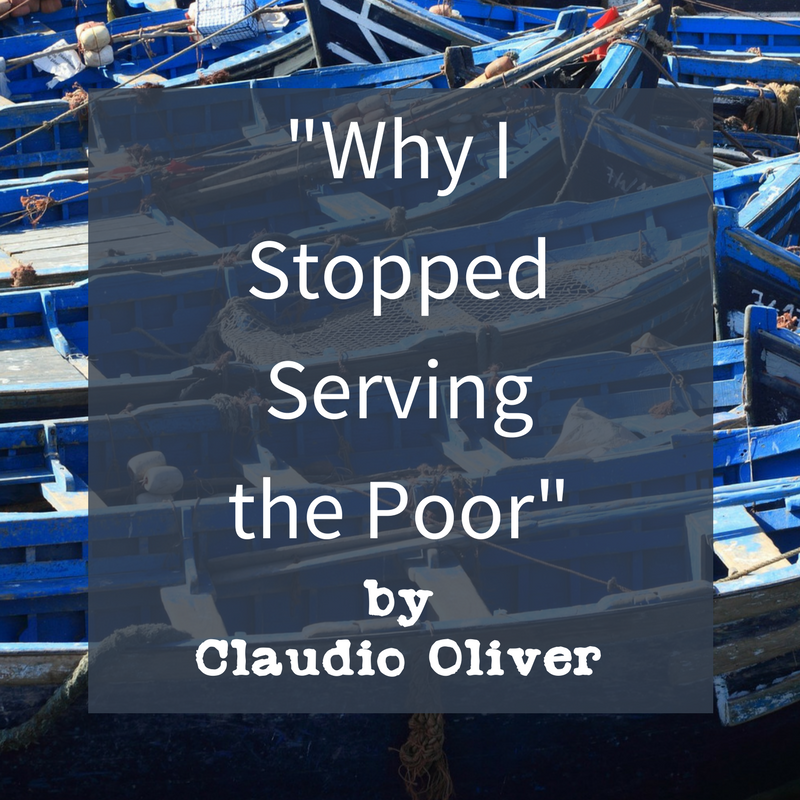 A few months ago, lament was heavy on my mind as I was hearing the news about DACA recipients. I didn't know how to express my lament, so I opened up an amazing book by Soong-Chan Rah about lament and found the tool I didn't know I needed: the acrostic. Then, stretching in a way I didn't realize I needed to, I began to pen A Lament to God for Christ the Immigrant, with help & direction from the brilliant Juliet Liu. Today marks a culmination of decisions that have me, once again, feeling the heaviness of lament. So once again, I have turned to the acrostic. And once again, I must thank Prof. Rah for this tool in the midst of weighted pain. I lament: for the Adulting you had to do at such a young age. for the Bonds that must get prematurely cut. for the Control you should have over your life but you dont. for the Decisions made without your input. for the Environment you had to grow up in. for the 'Foster' put before your name, and the prejudice that will come from it. for the Grotesque scenes you've witnessed. for the Heaviness you carry with you. for the Isolation you constantly feel. for the Juxtaposing you do daily between your life and everyone else's. for the Knowledge that has come to you out of its proper order. for the Lying you've learned to mimic. for the Mountains others will call mole hills. for the Notes home from teachers that wouldn't be there if ... for the Opportunities that never were. for the Pains of growing up that will be deeper than most kids your age. for the Questions that may never be answered. for the Rights that may terminate or may not terminate. for the Songs of childhood you never learned to sing. for the Tension you may always hold between your past and your future. for the Unwillingness for most people to understand you. for the Visions of horror and the visions of home you hold in your minds eye. for the Ways the people of God have not been intentional about loving you. for the Xrays that show & don't show the abuse. for the Youth that was stolen and will never fully return. for the Zeniths of times with blood family that may all be in the past. for this I pray. for this I lament. For the ways in which I have been selfish in my love for you, I lament, I repent. Christ have mercy.
2 Comments
 Entering the False Narrative Matthew 15:21-28 Seems to paint a confusing picture of Jesus. A Canaanite woman comes to him and asks for her daughter to be healed of demon oppression. Rather than conceding, Jesus seems to oppress the mother. And Jesus went away from there and withdrew to the district of Tyre and Sidon. And behold, a Canaanite woman from that region came out and was crying, ‘Have mercy on me, O Lord, Son of David; my daughter is severely oppressed by a demon.’ But he did not answer her a word. And his disciples came and begged him, saying, ‘Send her away, for she is crying out after us.’ He answered, ‘I was sent only to the lost sheep of the house of Israel.’ Jesus is excluding her, so it seems. Hasn’t he been feeding anyone and everyone who comes around? Hasn’t he been teaching the disciples that nationality, religion, ethnicity, and gender do not matter in the kingdom of God? What is going on? Potentially unbeknownst to her, this woman is entering a test not of her own faith, but of the disciples’ faith. Jesus is trying to get his disciples to wake up. They want to send her away. He wants them to bring her in. He wants them to correct him when he sarcastically says that he’s only here for the house of Israel. But they don’t. She’s annoying them. She won’t listen when they send her away, so they beg Jesus to use his power and authority to tell where she belongs, put her in her place. Remind her that she is an ‘other’. The woman persists. Jesus is Exposing the Disciples’ False Narrative But she came and knelt before him, saying, ‘Lord, help me.’ And he answered, ‘It is not right to take the children's bread and throw it to the dogs.’ Jesus lays out a false narrative to test the disciples and see if they will correct him. John Leonard in his sermon on this passage says we should laugh immediately when Jesus says this: Jesus just fed five thousand people; how many baskets left over? Twelve. Jesus will, after this, feed four thousand people and seven baskets will be left over. Where are those twelve baskets of leftover bread? … I like to imagine each disciple having a large basket of bread and Jesus says, “You can’t take the children’s bread and give it to the dogs! There’s not enough bread to go around! If we give bread to you, there’s not going to be enough bread for us!” And the disciples, with their big basket of bread, “No, not enough bread here for us! Not enough bread here for you!” Jesus is focused on teaching the disciples a lesson. He enters their oppressive narrative for a moment to see what the disciples will do. I’m not sure their lack of response surprised him. But the woman’s response did. Jesus is Seen in the Canaanite Woman She said, ‘Yes, Lord, yet even the dogs eat the crumbs that fall from their masters' table.’ Then Jesus answered her, ‘O woman, great is your faith! Be it done for you as you desire.’ And her daughter was healed instantly. As many concepts as there are to focus on this sermon, I want to highlight this woman’s lexical action. In our current American political and religious climate, we have theological arguments happening every minute. Everywhere you look, especially on social media, to engage with others who are theologically different than you is to engage in a lexical joust. The Canaanite woman was not afraid to enter the false narrative and flip it over. This, I believe, is how she surprised Jesus. She didn’t correct him by forcefully telling him all the reasons he was wrong. She entered the oppressive story humbly, and came out on top. In this story, the Canaanite woman is more authentically Christ-like than the disciples. Christ entered the false, generationally-strong narrative of the Israelites idea of who the Messiah should be. He chose to enter the story. He changed attitudes not by yelling ‘False Narrative’ here and ‘Fake News’ there, but by listening to the pain behind the incomplete stories, acknowledging that pain, and entering the narrative to change it from the inside out. Of course, there were people who didn’t want to listen. There always will be. But when the argument is worth it, when we are as desperate for relational reconciliation as this woman is for her daughter to be healed, we must enter the false narrative. Jesus Didn’t Immediately Cry Wolf over False Narratives Bridge building work is difficult work. Most Christians I know interact with other Christians who don’t agree with them on the social justice issues of our time. It seems almost impossible to build a bridge between polarizing sides, whether it’s about immigration, healthcare, racial tension, first amendment rights, or the economy. I have noticed in my own debates that entering the other’s narrative gets me much further than immediately calling it out as false and refusing to enter it. Let’s say someone tells a story about their own experience with racial tension, but the story itself is not a full picture. Let’s say the story doesn’t even address the historical or economic nature of this ongoing tension. Don’t automatically cry wolf. Listen to the pain behind the story, acknowledge that pain, enter that narrative. Entering the other’s story does not mean we are validating the whole truth of that story. It does mean we are validating the personal experience had. Entering the story helps us stay humble, and it helps us see things from a different perspective. When the Canaanite woman entered the story and allowed herself to be called a dog—which is she not!—she was not validating that false narrative, but she was highlighting a hidden truth even within that false narrative. Dogs eat crumbs. She needs food. Period. Her daughter needs healing. Period. The humanity of the ‘other’ won’t be seen by crying wolf all day long. The humanity is seen by entering the story. Correcting someone’s narrative—whether we are being corrected or we are correcting another’s—does not happen without first acknowledging the dignity of the human being. But we cannot fight well if we only fight with anger. We must have compassion. We must show others dignity, all the while spreading as complete a gospel narrative as we humanly can and recognizing that no human being has a full, complete narrative—no not one. |
Gena's
|

 RSS Feed
RSS Feed

